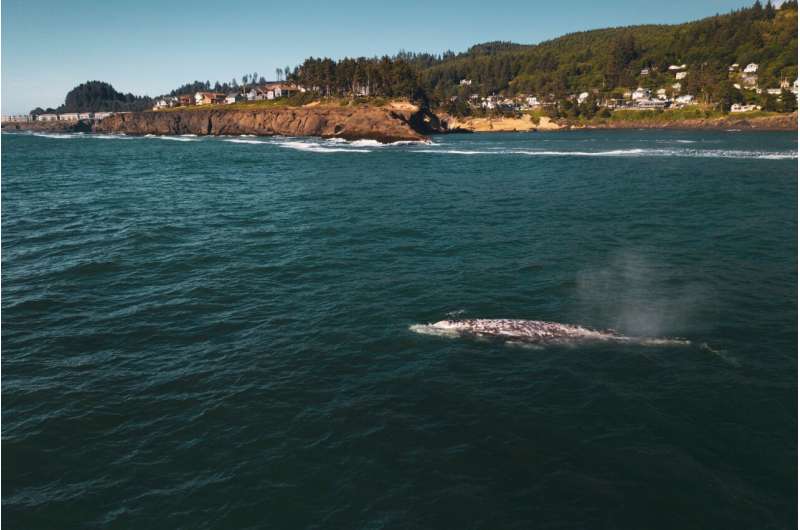Man-made chemicals could be stressing out marine mammals

Marine mammals are grappling with climate change, but now a researcher has joined FIU to study whether chemical contaminants are adding an additional layer of stress to this already tense situation.
Chemical contaminants widely used in commercial and consumer products can be found everywhere—from the expanses of remote, isolated areas down to the flesh, organs and blood of animals in the ocean. Leila Lemos wants to know if dolphins are feeling the effects from chemicals already proven to be harmful to people.
"Imagine you are an animal in the ocean. You need to deal with climate change. Maybe you don't have as much food, and you're facing starvation. And then there is all this noise pollution from ships and other vessels passing by. Maybe you also need to deal with trash, plastics and chemical pollution in general," Lemos said. "There are so many stressors and we just don't know yet how they are affecting these animals. My goal is to find out, so we can apply the findings to their conservation."
Lemos—a distinguished postdoctoral scholar in FIU's College of Arts, Sciences & Education—is working with FIU chemistry Assistant Professor Natalia Soares Quinete to investigate how perfluoroalkyl and polyfluoroalkyl (PFAS) and other types of chemical exposure impact marine animals.
PFAS are a group of chemicals that have been used in a variety of different industries over the decades and used in everyday human products—food packaging, paper products, water repellents, adhesives, firefighting foams and more. The U.S. phased out production of PFAS, because they can cause liver and kidney damage, thyroid disease, decreased fertility and more.
Once these chemicals enter the environment, they never disappear. They are in the air, dust, soil, water and even in some food. Over time, they accumulate in the environment and in everything that lives in the environment.
PFAS exposure has been documented in some dolphin species, but Lemos wants to know whether there's a correlation between exposure and increased stress biomarkers. This will give a better understanding of the short and long-term effects to the animals' health. She hopes to collaborate with aquariums and rehabilitation centers to study marine mammals. Because they are in the top of the food chain, they bioaccumulate more of these chemical contaminants—and are one of the best sentinels of environmental contamination.
Lemos grew up in Rio de Janeiro, Brazil and always wanted to work with animals, especially dolphins and whales. As an undergraduate, she majored in biology and studied the presence and behavior of southern right whales in Uruguay as a volunteer. She loved being in the field conducting research, so she decided to continue her studies. As a graduate student, she focused on toxicology and measured the amounts of mercury and cadmium in dolphin tissue samples.
In 2015, Lemos moved to the U.S. to pursue a Ph.D. in wildlife science at Oregon State University. Her dissertation focused on gray whales, specifically how their body condition and hormone levels fluctuated in response to different environmental stressors, like lack of prey and noise in the ocean.
When the gray whales would arrive in May or June, Lemos would hop on a boat to spend the next four months out on the water searching for them. When she'd spot one, she'd first take a photograph and then fly a drone to get a closer look at their nutritional state.
One of the most critical pieces of data she needed to collect, though, required more patience—waiting for the whales to poop. These fecal samples were precious, because they allowed Lemos to measure hormone levels, especially the stress-related hormone cortisol.
Today, her research will require more time in the lab. Acquiring samples from an aquarium, she will be able to identify the presence of PFAS and phthalates chemicals, as well as hormone levels from already collected samples. Her goal is to continue investigating how these stressors are impacting dolphins and whales, in order to to inform environmental management decisions and limit threats these animals face.
Provided by Florida International University





















